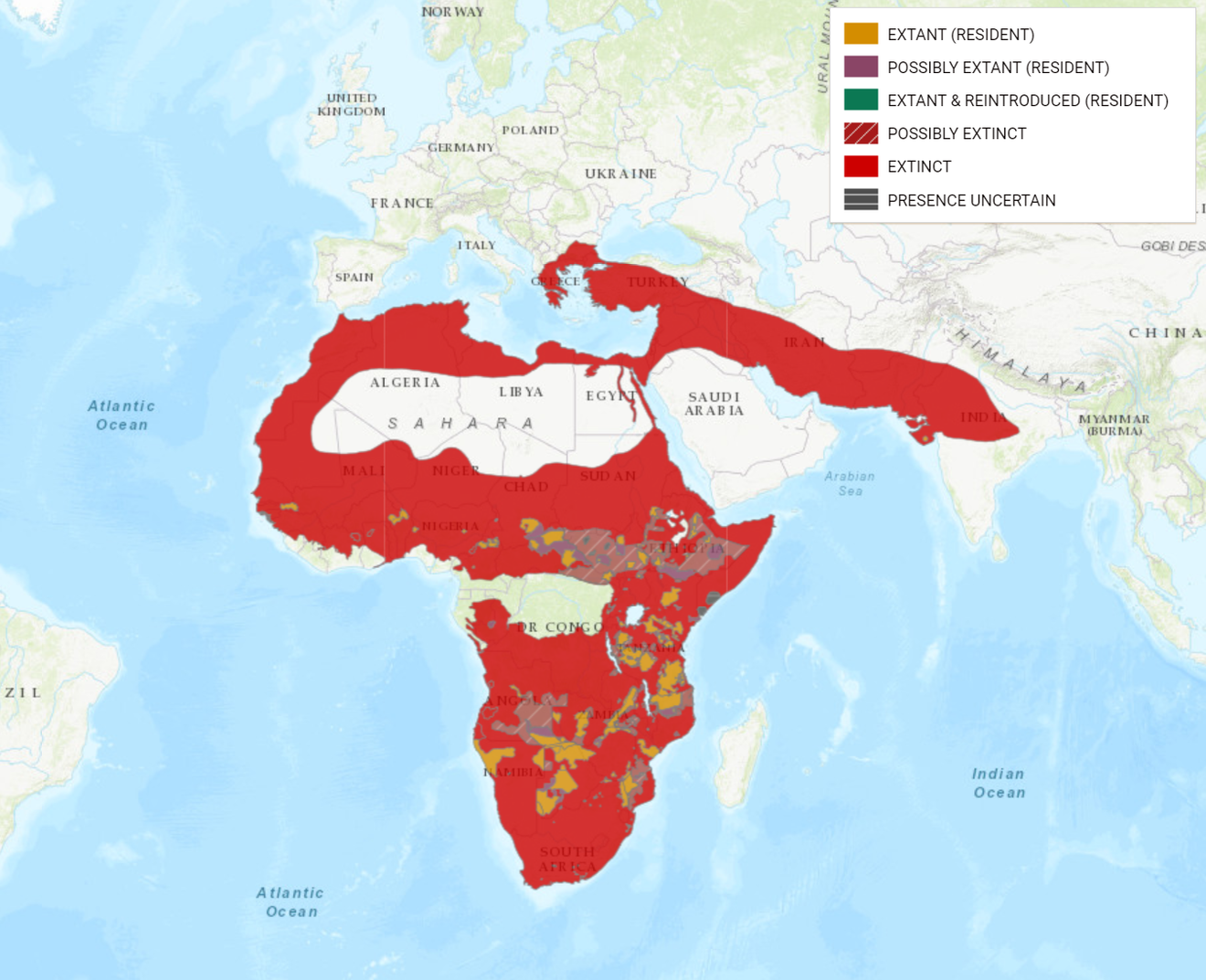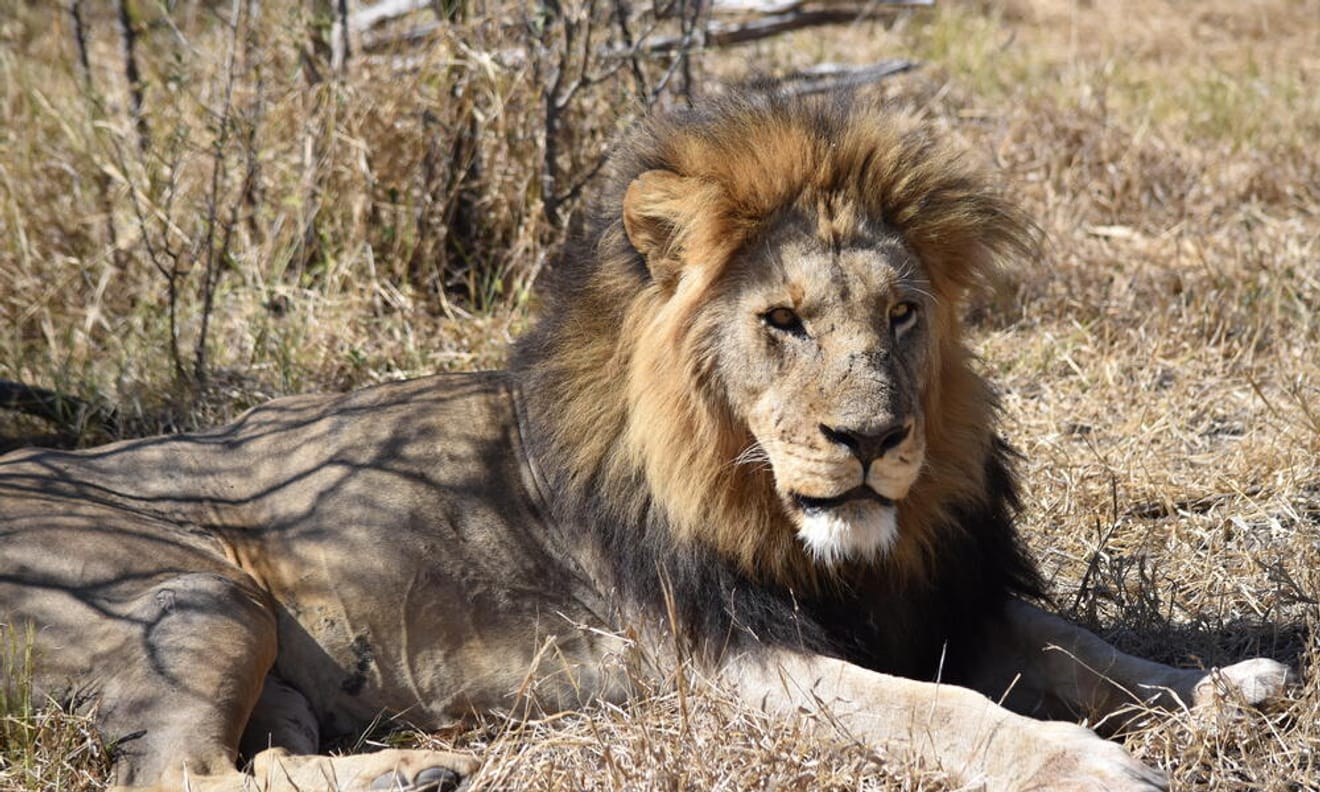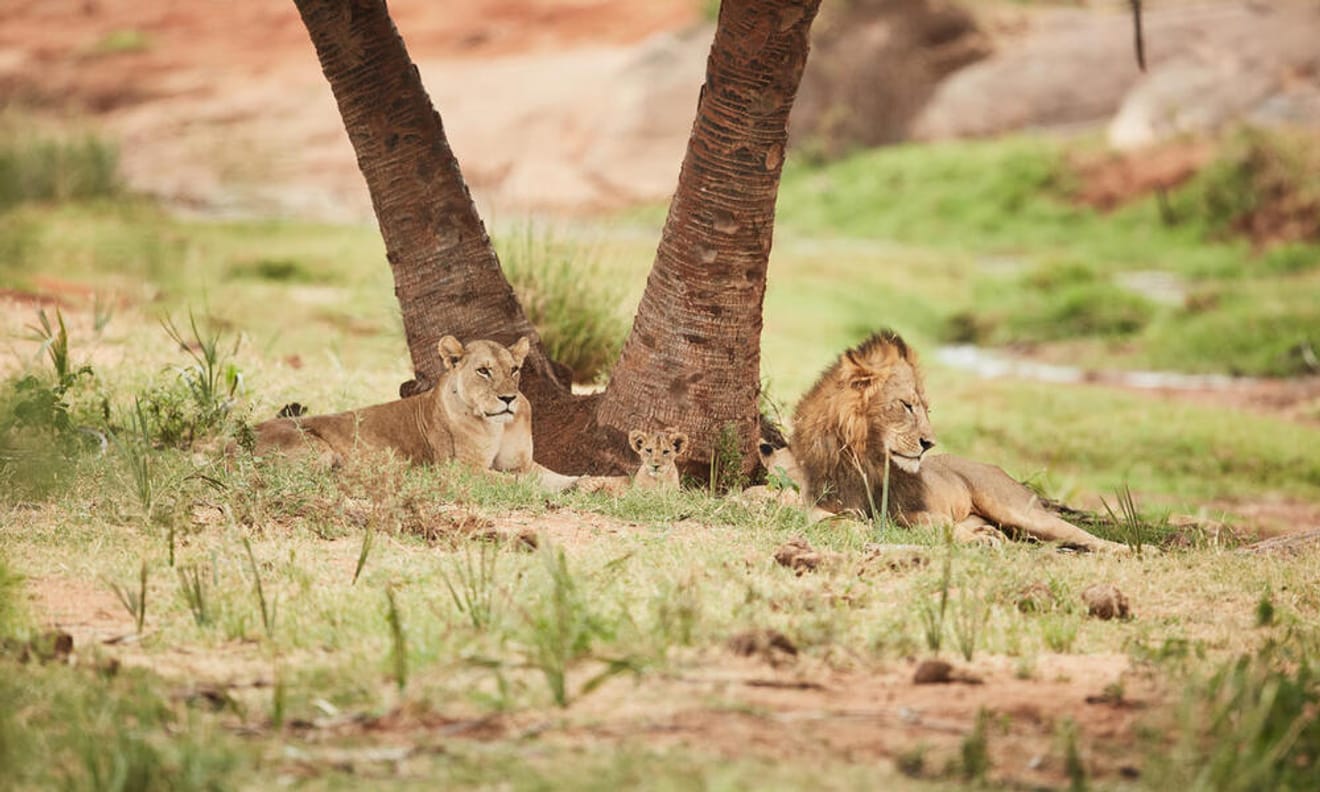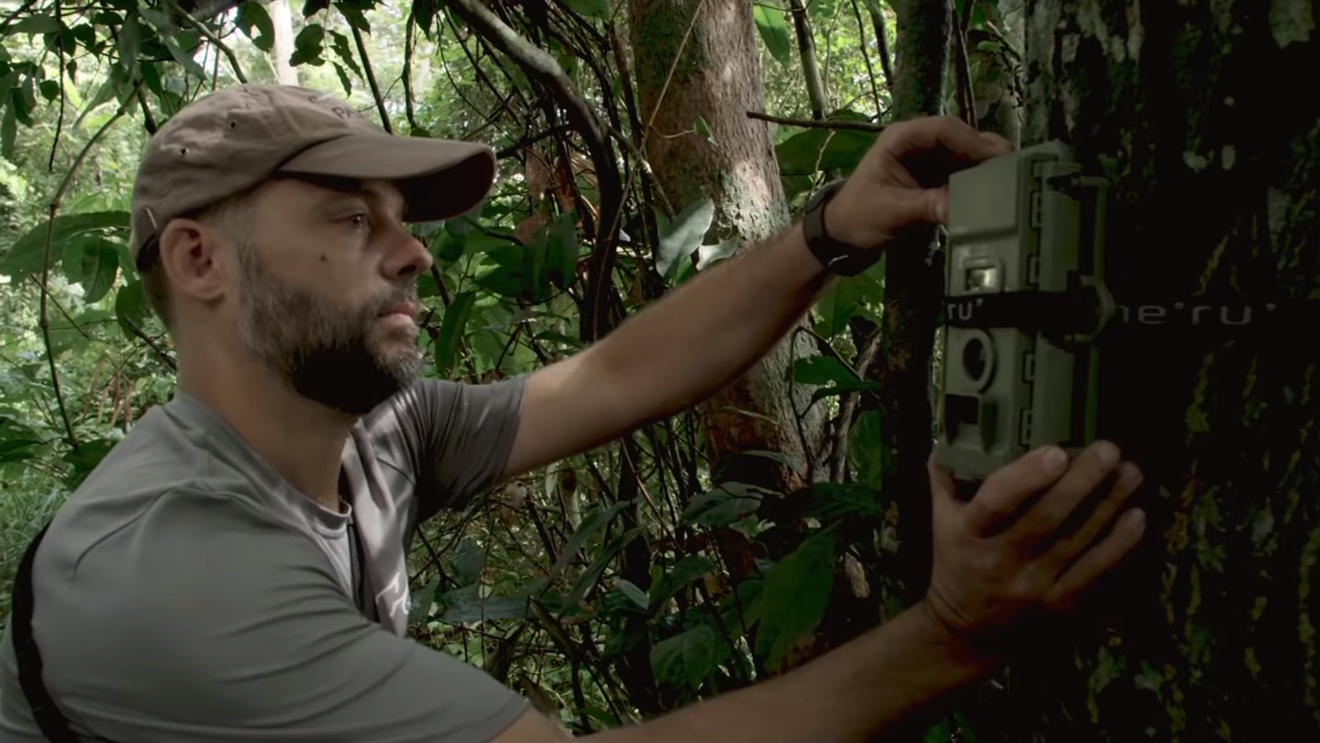Subject
- #Endangered Species
- #King of Beasts
- #Lion
- #Lion King
- #Endangered Animals
Created: 2024-02-06
Created: 2024-02-06 16:36

IUCN
A swift and powerful lion that scans for prey and then suddenly pounces to hunt. Its magnificent mane looks like a crown, doesn't it? But can even the king of beasts be immortal? Sadly, lions are facing extinction.

IUCN
Currently, there are about 20,000 lions worldwide. Wild lions inhabit most parts of Africa and the Middle East, thriving in forests and grasslands. Classified as Vulnerable (VU) by the International Union for Conservation of Nature (IUCN), lion populations continue to decline, putting them at risk of extinction.

IUCN
Human activities have significantly reduced lion habitats. It is estimated that the current lion habitat is only about 8% of its former size. Land development and climate change are major contributors to this decline. While efforts are being made to establish protected areas for lion conservation, fragmented reserves can negatively impact these highly social animals. Such fragmentation can lead to reduced breeding capacity and decreased genetic diversity.
Perhaps the only enemy of the king of beasts and apex predator, the lion, is humankind. With advancements in science and technology, human living spaces have expanded, while wild animals have lost their habitats. In addition to habitat loss, declining prey populations have led to an increase in lions struggling to find food, ultimately resulting in population decline and the threat of extinction. When lions wander in search of food and reach human settlements, humans perceive them as a threat and kill them. From the lion's perspective, they are simply seeking food that has been taken away by humans, only to lose their lives in the process.

WWF
Of course, if a lion appears near where I live, killing it might be the best option. After all, I could become its prey. However, beyond these unavoidable circumstances, there are individuals who actively hunt lions.
Some might wonder, 'How can someone hunt such a fearsome animal?' But the number of humans who hunt lions is surprisingly high. Those who hunt lions for trade, seeking profit from their skins, teeth, and bones, are also major contributors to the lion's plight towards extinction.

https://www.hani.co.kr/arti/animalpeople/human_animal/1104366.html, Photo provided by Gyeongbuk Fire and Disaster Headquarters
Lions are commonly seen in zoos. It can be disheartening to see these animals, meant to roam vast grasslands, confined to cramped enclosures. In fact, there are instances of lions escaping from zoos due to their confinement. In such situations, humans are left with only one choice: euthanasia. In 2023, in South Korea, a lion named 'Sasuni' (사순이), who had spent 15 years confined in a small enclosure at a tourist farm, was killed just one hour after escaping. While the facility wasn't found to be illegal, negligence on the part of the farm owner allowed Sasuni to venture out into the nearby bushes for its first outing in 15 years, only to lose its life. Sasuni's story compels us to contemplate the ethics of using animals for human entertainment.

WWF
The extinction of lions, wild predators, would have a significant impact on the entire ecosystem. The disappearance of lions would lead to a surge in herbivore populations and a rapid decline in vegetation. While the extinction might seem limited to a single species, the larger consequences of disrupting the food chain and ecological balance could be devastating.

Walt Disney Studio YouTube video ‘The Lion King | Protect The Pride’ capture
Disney, the creators of the globally acclaimed animated film 'The Lion King,' launched the 'Protect the Pride' campaign in collaboration with the Lion Recovery Fund (LRF) to safeguard lions from extinction. It is disheartening to learn that in the 25 years between the release of 'The Lion King' and the initiation of the 'Protect the Pride' project, half of Africa's lion population has vanished. Disney has committed to utilizing funds raised through the campaign to protect lion habitats, monitor populations, and actively work towards restoring lion numbers. Hopefully, such continued awareness and efforts will ensure the survival of the king of beasts.
Comments0